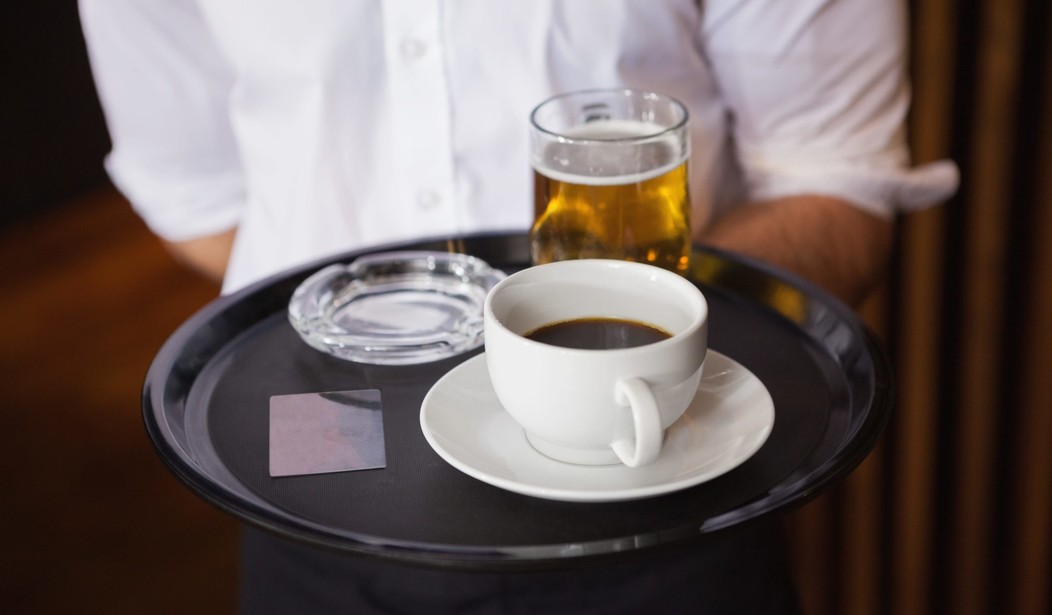Humans have long been addicted to alcohol and caffeine. But these two drugs — which kill those who overdose — have enabled the birth and flourishing of civilization.
Chelsea Follett, managing editor of HumanProgress.org, a project of the CATO Institute, explained exactly how “alcohol and caffeine created civilization” in a recent USA today column. “Nature created both to kill creatures much smaller than us — plants evolved caffeine to poison insect predators, and yeasts produce ethanol to destroy competing microbes,” she noted.
Alcohol is famous for being toxic — after all, it kills 3.3 million people each year, causing 5.9 percent of all deaths and 25 percent of those among people aged 20 to 39, according to the WHO. But research also suggests that alcohol may have helped create civilization.
As Follett noted, consuming alcohol likely gave early humans a survival edge. “Before we could properly purify water or prepare food, the risk of ingesting hazardous microbes was so great that the antiseptic qualities of alcohol made it safer to consumer than non-alcoholic beverages — despite alcohol’s own risks,” she wrote.
Robert Dudley, professor of integrative biology at the University of California Berkeley, proposed the “drunken monkey” hypothesis, arguing that modern alcohol abuse “arises from a mismatch between prehistoric and contemporary environments.”
The oldest evidence of alcohol comes from palm wine, which might trace all the way back to 16,000 B.C. A Chilean alcoholic drink made from wild potatoes might trace back to 13,000 B.C. Residue on pottery at an archaeological site in Jiahu, China, dates rice wine back to at least 7,000 B.C., about one thousand years after rice was domesticated.
Researchers have even argued that the desire for a stable supply of alcohol could have motivated the beginnings of agriculture and non-nomadic civilization. “The domestication of plants [was] driven forward by the desire to have greater quantities of alcohol beverages,” archaeologist Patrick McGovern told National Geographic. It was long thought that people domesticated wheat for bread, and beer was a byproduct — but McGovern argued it was the other way around.
If alcohol inspired agriculture, caffeine jumpstarted progress. While the Chinese drank caffeinated tea as far back as 3,000 B.C., the discovery of coffee is dated to 15th century Yemen. Trade with the Arab world transformed European culture — the caffeine in coffee, a stimulant, replaced alcohol, a prevalent depressant.
“The impact of the introduction of coffee into Europe during the seventeenth century was particularly noticeable since the most common beverages of the time, even at breakfast, were weak ‘small beer’ and wine,” Tom Standage wrote in A History of the World in 6 Glasses. “Both were safer than water, which was liable to be contaminated. … Coffee … provided a new and safe alternative to alcoholic drinks. Those who drank coffee instead of alcohol began the day alert and stimulated, rather than relaxed and mildly inebriated, and the quality and quantity of their work improved.”
“Western Europe began to emerge from an alcoholic haze that had lasted for centuries,” Standage quipped.
Coffeehouses became a centerpiece of the Enlightenment — Adam Smith wrote The Wealth of Nations bolstered by caffeine from two fine pre-Starbucks establishments: Cockspur Street and the Turk’s Head. Thomas Jefferson called coffee “the favorite drink of the civilized world.” Historian Mark Pendergrast told NPR that “the French Revolution and the American Revolution were planned in coffeehouses.”
While the age of Western innovation arguably started in the late Middle Ages, the Enlightenment and the Industrial Revolution increased the pace of innovation, boosting living standards to previously unimaginable heights. In the past hundred years, free markets and global trade have unleashed a level of progress unlike anything in the past. Refrigerators, microwaves, running water, cars, airplanes, computers, and iPhones are just a few central examples.
Follett ended her article by noting the benefits of modern civilization:
Today, despite population growth, fewer people live in poverty than ever before. People live longer lives, are better educated, and many more enjoy the blessings of liberal democracy than was the case decades ago.
The world still has its problems — and some modern errors would be just as unthinkable as modern progress to previous generations. But it is undeniable that mankind has taken a great leap forward, and that both alcohol and caffeine played pivotal roles in the history of civilization.
As Follett wrote, “Alcohol gave civilization its start, and it certainly helped the species drown its sorrows during the grinding poverty of much of human history. But it was caffeine that gave us the Enlightenment and helped us achieve prosperity.”
So as millions across the world celebrate St. Patrick’s Day on Friday, remember that alcohol enabled human progress in the first great leap forward into agriculture. Cheers!









Join the conversation as a VIP Member